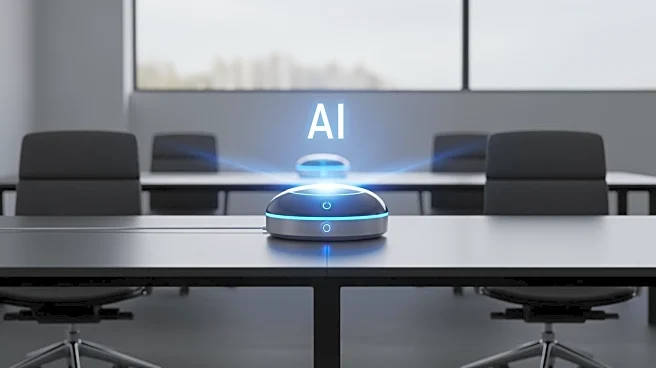What's Happening?
A recent report by Mercer has identified a 'leadership vacuum' in workplaces as a significant factor contributing to employee anxiety regarding artificial intelligence (AI) and other emerging technologies.
The report, based on a survey of 8,500 workers globally, reveals that less than 20% of employees have received communication from their direct managers about AI's impact on their jobs. This lack of communication is causing uncertainty and disruption, particularly in industries with high AI adoption. The report emphasizes the need for effective leadership that involves visible engagement and honest communication to address these concerns. Managers are seen as crucial in alleviating workforce fears, yet they often feel constrained by a lack of clear AI strategy.
Why It's Important?
The findings underscore the critical role of leadership in managing technological transitions in the workplace. As AI continues to reshape industries, the absence of clear communication from leaders can exacerbate employee anxiety, potentially affecting productivity and morale. This situation highlights the need for organizations to invest in leadership development and training to ensure managers are equipped to guide their teams through technological changes. The report suggests that improving communication and providing upskilling opportunities can enhance job security and employee engagement, which are vital for maintaining a competitive edge in the rapidly evolving job market.
What's Next?
To address the leadership vacuum, Mercer recommends training managers in AI fluency and creating environments that encourage risk-taking and skill application. Organizations are also advised to improve communication strategies to reassure employees about job security and career advancement opportunities. As AI continues to integrate into various sectors, companies may need to reassess their leadership approaches and invest in continuous learning to keep pace with technological advancements.









